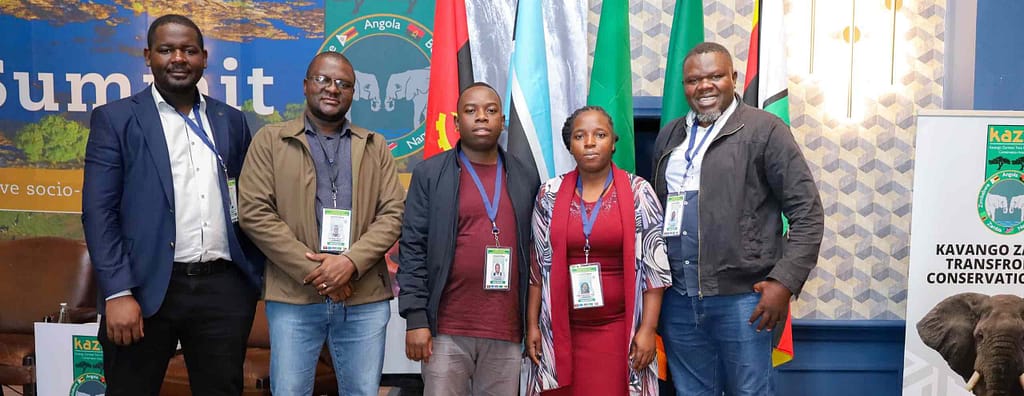The recent Kavango-Zambezi (KAZA) Trans-Frontier Conservation Area (TFCA) Summit held in Zambia served as a pivotal gathering for over 400 delegates from Angola, Botswana, Namibia, Zambia, and Zimbabwe. With a focus on wildlife conservation and sustainable tourism, the summit provided a platform to assess progress, address challenges, and chart a course for the future of this vital initiative.
Among the esteemed guests were Dr. Cyril Taolo, the Government Liaison Officer of the Gaborone Declaration of Sustainability in Africa (GDSA), and Mr. Moemi Batshabang, Acting Director of the Department of Wildlife and National Parks. Their presence underscored the commitment of governments and organizations to collaborate and find solutions to pressing conservation issues.
One of the central topics of discussion was the challenge of elephant overpopulation. Delegates grappled with finding a balance between conservation efforts and managing the growing elephant population, which can have significant ecological and economic impacts on local communities. Strategies for sustainable elephant management, including translocation and habitat restoration, were explored to mitigate human-wildlife conflicts and protect biodiversity.
The summit also delved into the complexities surrounding wildlife hunting and trophy imports. With increasing pressure from the international community to ban trophy hunting and restrict the import of wildlife products, delegates examined the implications of such measures on conservation efforts and local livelihoods. The importance of sustainable hunting practices and community involvement in decision-making processes emerged as key themes in the discussions.
CITES’ restrictions on the trade of elephant products further underscored the need for coordinated action among KAZA member countries. Delegates emphasized the importance of finding common ground to address conservation challenges while respecting international regulations aimed at protecting endangered species. Collaborative efforts to combat wildlife trafficking and strengthen enforcement mechanisms were identified as essential steps in safeguarding biodiversity.
Climate change emerged as a cross-cutting issue with profound implications for conservation in the KAZA region. Delegates highlighted the need for adaptation strategies to mitigate the impacts of climate change on ecosystems and wildlife habitats. Promoting sustainable tourism practices and investing in renewable energy initiatives were identified as proactive measures to build resilience and reduce carbon emissions.
As the summit concluded, delegates reaffirmed their commitment to the principles of the KAZA TFCA and pledged to continue working together to advance conservation goals in the region. By fostering cooperation among governments, organizations, and local communities, the KAZA initiative aims to conserve biodiversity, promote sustainable development, and ensure the long-term well-being of the people and wildlife that call this remarkable region home.










